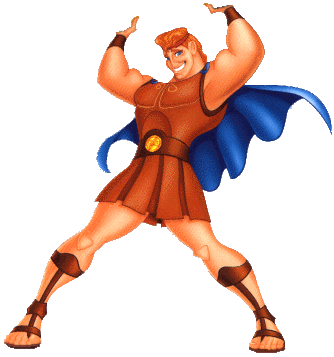
Our human craving for the supernatural
When watching the animated Disney version of the Greek story of Hercules (Greek: Heracles), which contains many digressions from the original myth, one would almost believe that the creators of Superman did nothing but copy Hercules in a modern age version. A baby from outer space (or the mountain Olympus), taken up by foster parents, growing into a human of extreme power and ability, saving the world in which he lives.
They are both just stories to begin with. We might even be similarly inclined to believe the story of Superman as the Greeks did in respect of their Gods and superheroes. For them they were nothing less than the key characters of their national religion. Superman in our time has not come that far. However much he is our modern day myth of a son of the stars and his powers are derived from our own yellow sun, the Christian superhero, Jesus Christ, Son of God, is still a stronger myth, stronger than any myth attempted or created ever since the first century AD.

In all three stories there is a child who is raised by foster parents of our own Earthly world. Even Maria could to some extent be considered s foster mother, for her child was conceived for a destiny far beyond the grasp of mortal parents. All three enjoyed a childhood of humble proportions. Nothing in their earthly surroundings, whether the simple nomadic existence of Maria and Joseph or the rural life of Martha and Jonathan Kent. It seems to me that indeed the creators of Superman, Jerry Siegel and Joe Schuster, knew their classics when almost eighty years ago they concocted the myth of Kal-El, son of Krypton, who became the greatest superhero ever imagined on the planet Earth.
Of course, Superman was never conceived as a claim to our fundamental beliefs. Still, he is an important icon of our Americanized world. American concepts and myths pervade our western world ever since Woodrow Wilson first dictated his (ill fated) Pax Americana in the closing days of a world dominated by European imperial concepts and myths. The story of Superman is part and parcel of this – essentially twentieth century – reality. It will be difficult to conceive the total oblivion of this story, even though – no doubt – Superman will ‘die’ many more episodes to come (it happened twice so far, by my recollection).

And we do want to believe to some extent. At least we want to believe in this ultimate fantasy of the supernatural, the superhuman, whether sired by divinity or by living beings on distant stars. Hercules, Jesus Christ, Superman and many other similar myths or stories have served humanity for most of its existence to satisfy this universal need. Both our experiences and our hopes are infested with the notion that our world, including our personal existence, is influenced if not governed by agents outside our normal powers of observation. Some believe in an actual, existing God, others cannot escape a sense of fate or pre-determination, and I believe in guardian angels.
Most of all, ever since I first came eye to eye with him at the age of eleven, I believe in Superman. Obviously there is nothing in me that believes he ever really existed, but the comics that have come out of Schuster’s and Siegel’s first inspiration all serve as a reminder of our human limitations, our weakness and even our potential for malice. And aren’t these the universal themes of all myths and legends, isn’t this in fact the key message of almost all religions? You don’t have to believe in anything and still accept these ‘truths’ as a beacon in your life.
But otherwise, Hercules, Superman and Jesus Christ simply offer us the kind of fairy tales that of necessity accompany our earthly path, wonderful fiction which is the essence of our humanity.

